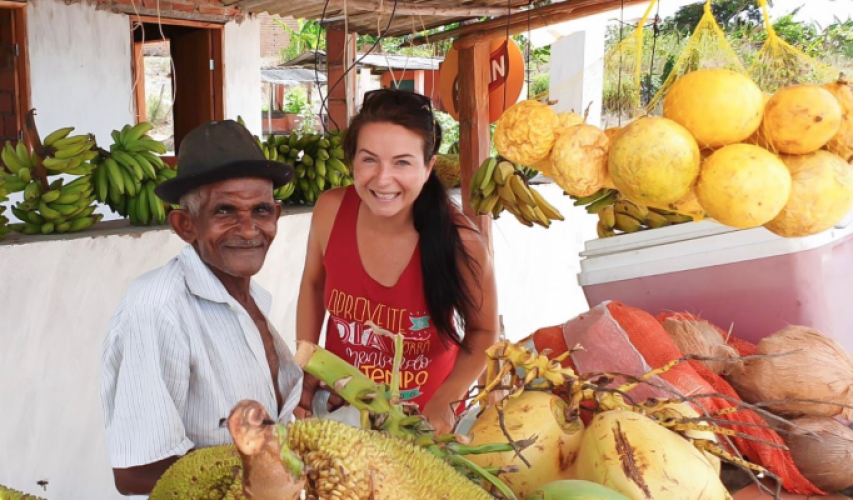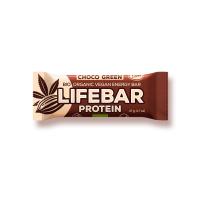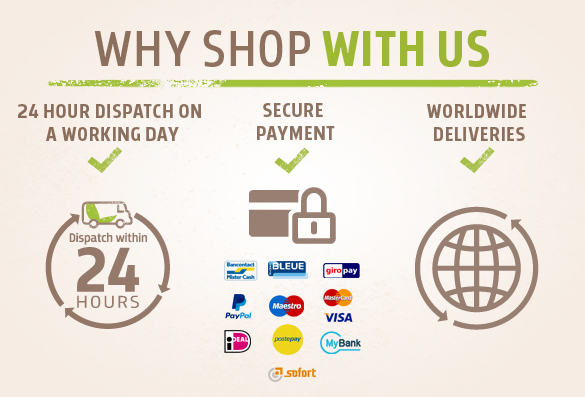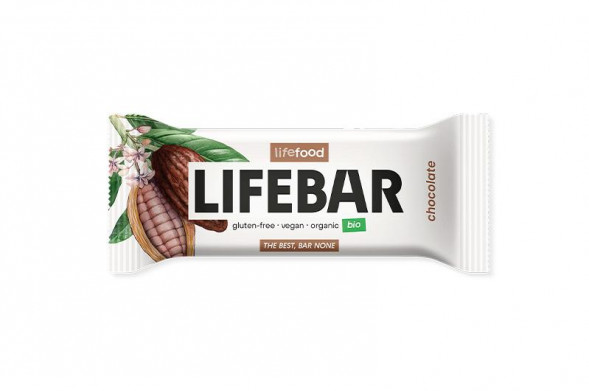Recently, the owner of Lifefood, Tereza Havrlandová, was a guest of the Czech online lifestyle magazine “Týden”. For two hours she answered many interesting questions that the readers sent in about raw food and healthy diets in general. We are pleased to share some interesting examples which you will hopefully find interesting.
Johana: Hi, isn't the RAW food diet just a trend? Is it a really good way of eating? And why?
Hi Johana, thanks for your question. When looked at from a natural point of view and regarding the physiological function of the human organism, it is the most basic and natural way of eating. None of us were born with a stove on our backs, in other words, nature did not expect us to cook or grill our food. From this point of view, it is not just a trend but a return to a more natural way of eating. The only “trendy” thing about it is that you can find RAW products on every corner. Unfortunately, not all of these are truly RAW and therefore we take pride in making products that we can call “Really RAW” or truly RAW.
It certainly is a healthy way of eating, where benefits can be seen as soon as you start adding more raw food into your diet. The basic principle is to consume live food, that is, food that contains enough substances important for our bodies in an unchanged, natural form, which our body is able to absorb: be it vitamins, minerals, trace elements, enzymes or antioxidants. At the same time, when eating RAW food, it is easier to avoid toxic and particularly harmful substances which result from heat processing. This can be achieved by consuming fresh fruits, vegetables, nuts and seeds, dried fruits, herbs and spices, and foods made from all these ingredients. It is necessary to ensure that especially nuts and dried fruits are truly RAW, ideally indeed RAW and ORGANIC, because only this way can you get the above mentioned health benefits. Increasing the proportion of such food in your diet is generally suitable for everyone, and it is a great substitute for junk food as well.

Lucie: Hello Tereza, how did you manage to build such a big company by yourself ? Where do you get the inspiration and how do you manage everything? Thank you for your answer.
Greetings Lucie, it is such a burning question:) It took me 13 years to build up Lifefood from the ground up, which isn't really a short time. I was able to manage it especially thanks to great colleagues and partners. There is much inspiration around the world and at home as well, but my main drive is still the initial mission that was with me at the beginning - to show people that you can eat healthy, yet still tasty, fun and fulfilling foods. Thanks to Lifefood products, people have the opportunity to take healthy snacks with them on the go, to the office or to the gym, and not be held back by not having enough time to prepare healthy meals. In recent years my driving force has been enhanced by my vision of spreading the idea of “fair business” - a commercial activity that is not harmful to our Planet, to society, to its employees or local communities and concentrates on selling sustainable and above all honest products.
Katka: Hello Tereza, you are really accomplished, where do you get all the energy from? What is it like to manage such a big company? Do you actually have any time for yourself?
Greetings Katka, I get my energy mainly from eating lots of fruit and from good long quality sleep. In particular, I consider getting enough sleep as absolutely crucial while managing such a large company. And of course, having to manage a team of nearly a hundred employees is not a piece of cake, it isn't much fun. No, we actually have a lot fun :D. Having time for oneself is very important, one has to be consistent, disciplined and able to grab and not let go of that time. For me that time is mostly spent doing sports or gardening.
Iveta: I wonder if you are preparing for example a workshop on how to make similar products following one's own recipes. I would also like to know how best to make this kind of food more accessible and bring it closer to a customer who is not that “open” to raw food? Thank you!!!
Hello, Iveta, at Lifefood we specialize mainly in food production. But we've also organized several RAWfest festivals that included workshops and demo-presentations showing raw food preparation techniques. However, this isn't our main focus. Nowadays, you can find a lot of videos as well as courses online, including coaching that can help you with this. The products that we produce and supply to stores are intended to make this diet easier for everyone who is "not so far" in the Raw food diet yet. The courses often teach you how to make different RAW crackers, breads, sweets and other similar treats, but we at Lifefood make these things so that you can buy them right away in the store.
In addition, we make it from the highest quality RAW and ORGANIC ingredients that you often cannot get in regular stores. Often ingredients that are actually truly RAW are not available at all (but you can always find them in our shop). With our products you have healthy snacks without having to make them, so you have time to concentrate on other important parts of living healthily – such as main dishes, having plenty of fresh vegetables, fruits, enough exercise, proper breathing, good sleep and possibly self-education on the topic of healthy diets. It is possible that one day I might start organizing courses as well :)
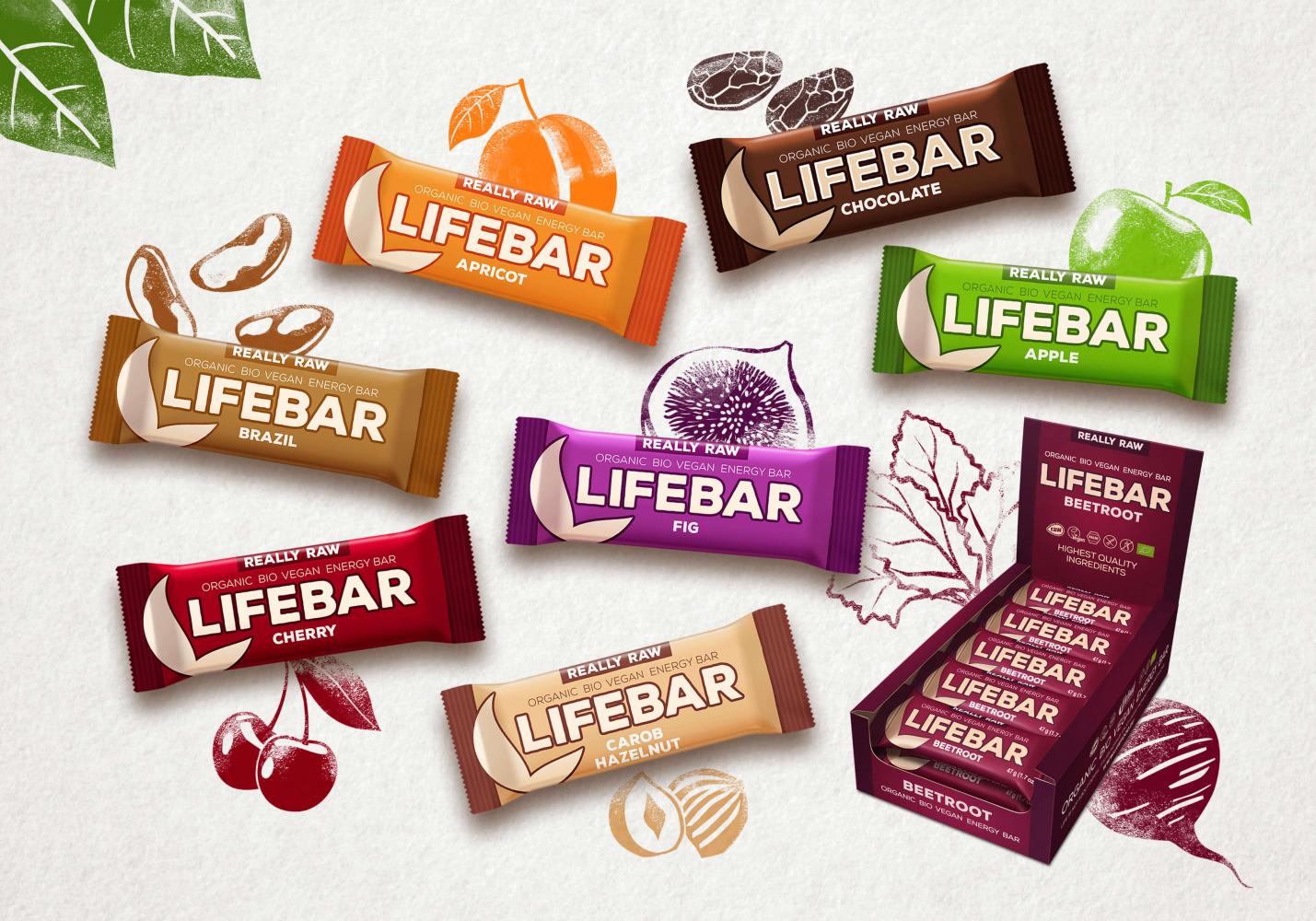
Roma: Hello, I would like to know a few things: 1) Which direction are you planning to take your products regarding for example the number of upcoming different products, trends, seasonal hits, long-term hit products etc. and what are your plans for the future? 2) What do you replace meat with in the RAW diet? 3) Have you ever met a customer who would be "semi-RAW" (i.e he would retain the benefits of multiple different diets). Thanks for the answers.
Hello, :) 1) Our range of products is constantly growing. We are gradually adding new product lines and expanding existing ones. Our flagship product is the Lifebar, which accounts for just over half of our turnover. Customers like and understand this product the most. That's why we often add new flavours or new sub-categories, such as the Lifebar Protein and Lifebar Superfoods. However, we do not concentrate purely on producing bars, our range of products is very wide. Since the beginning we have been making RAW crackers and breads, now under the Life Crackers brand, to which we have recently also added Protein Breads. Protein has become a big trend recently, but nothing lasts forever, that's why it can be assumed that the protein mania will die off, and will be most likely replaced by fibre, probiotics and omega 3 “nutritional trends”.
We have the advantage that our products usually contain all of these nutritional "hits" naturally, so we do not have to prepare new lines of products according to the next trend. But who knows, maybe the next product will be a Lifebar Fibre :)), because simply all of our products contain high levels of fibre due to the whole raw ingredients from which they are made. But we prefer to come up with different innovations such as the “RAWsage”, the first RAW vegan sausage - a savoury snack made from vegetables, nuts and herbs that is unique to the market and which will soon come in many new delicious flavours.

2) I don't replace meat because there is no need to replace meat. We, as humans, weren't created to consume meat, and the fact that we adapted to consume meat doesn't mean we need it. The World Health Organization has also identified the vegan diet as something that can completely meet all your nutritional needs and is healthy for the body as well as the planet. Of course, it is necessary to make sure you get a sufficient supply of proteins, minerals and vitamin B12, but the same can be said about a purely meat-based diet.
3) I have certainly met such people, it is actually much more common than people eating a fully 100% RAW diet. The most sensible and "most advantageous" version of such a diet would consist of about 70-80% of the RAW diet (raw vegetables, fruits, nuts and seeds, fermented foods), supplemented with beans and other legumes, potatoes or sweet potatoes, brown rice, etc. I hope that I have answered everything that is essential.
Jindra: Hello Tereza, is RAW food diet suitable also in winter? I can't imagine eating cold food when it's freezing outside. Thank you for your answer.
Hello Jindra, I understand that in winter you can get really cold. However, not every RAW meal has to be cold. RAW soups are the perfect rescue. RAW food can be heated up to 45 degrees Celsius, and if you've ever experienced such an outdoor temperature yourself, you know it's not cold. It's the easiest thing for soups – just heat it up gently so it's warm, but still not hot. Such a soup can warm you up nicely while still being super nutritious. Teas are also great in winter, especially infusions of herbs or ginger. But no one says you have to eat 100% RAW, especially in winter when it's more challenging. Still, the rule applies that you should seek out foods with a high content of nutrients, ideally from raw vegetables and fruits, and to avoid toxic substances such as smoked meat and sausages, fried foods and industrially processed foods. If you eat a vegetable soup that isn't raw, or some roasted or cooked beans during the day, it will not hurt you in any way and it certainly won't make you cold.
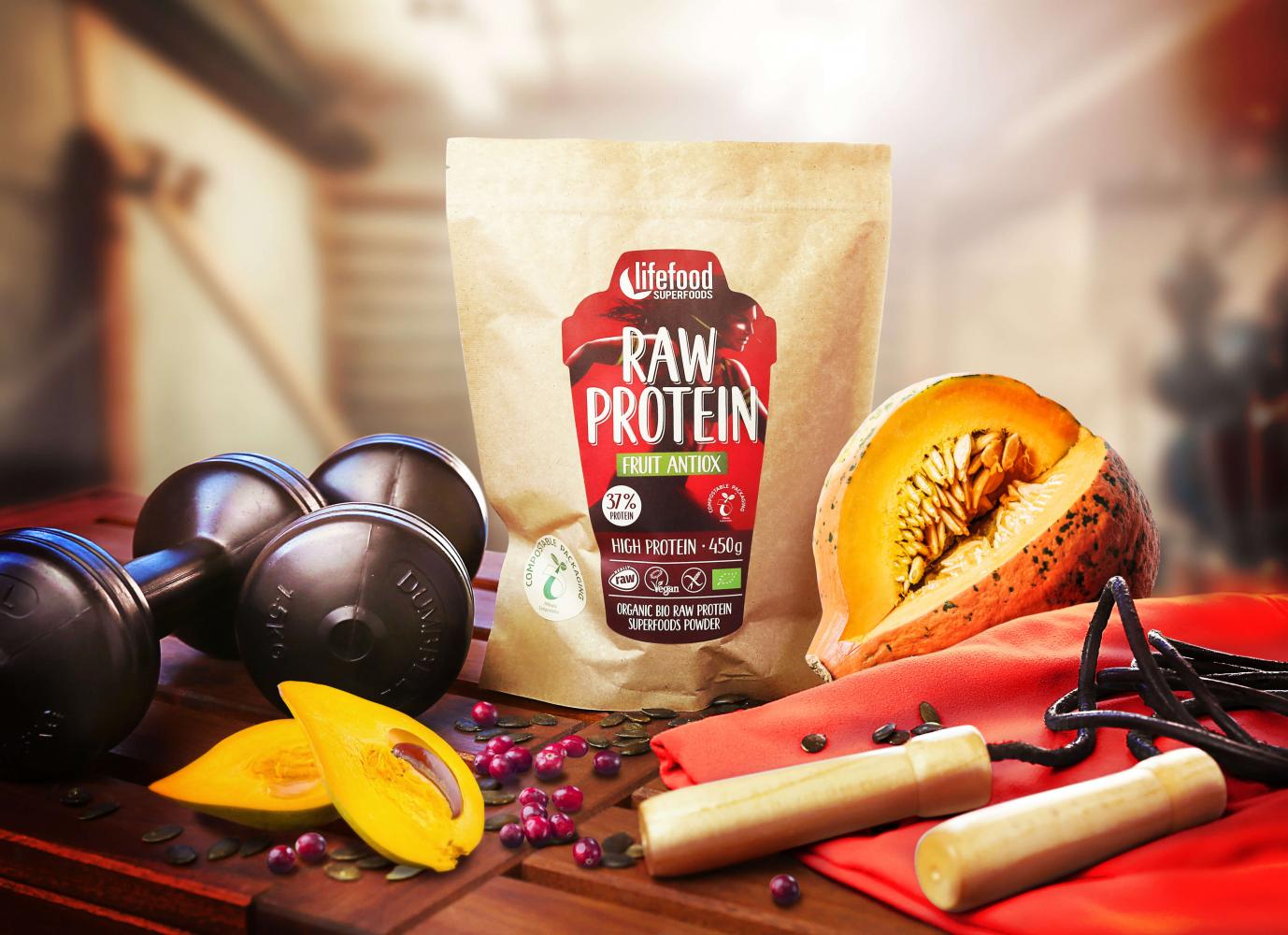
Kristyna: Hello Tereza, what should I keep in mind when trying to balance my RAW food diet? I have tough workouts several times a week in the gym and I don't know whether to exclude meat from my diet, or to follow the live food diet fully?
Greetings Kristyna, basically, it is important to look at the same thing as in any other diet - a sufficient supply of vitamins, minerals, enzymes and quality proteins. In a raw food diet, the best source of proteins and minerals are leafy vegetables. They just need to be consumed in greater quantities. They can then be supplemented or partially replaced with protein powders. It is important to check the quality of protein powders, i.e from what ingredients they are made with and at what temperature they are processed. Lifefood offers RAW proteins, supplemented with superfoods - protein mixes with superfoods, all made from the highest quality ingredients. In a vegan diet, legumes, especially beans and peas, are a great source of protein. Regarding sport and RAW food diet I recommend the website of Dr. Graham. Everything is explained excellently there. By now I know Dr. Graham personally, and his advice have once opened my eyes and changed my life.

